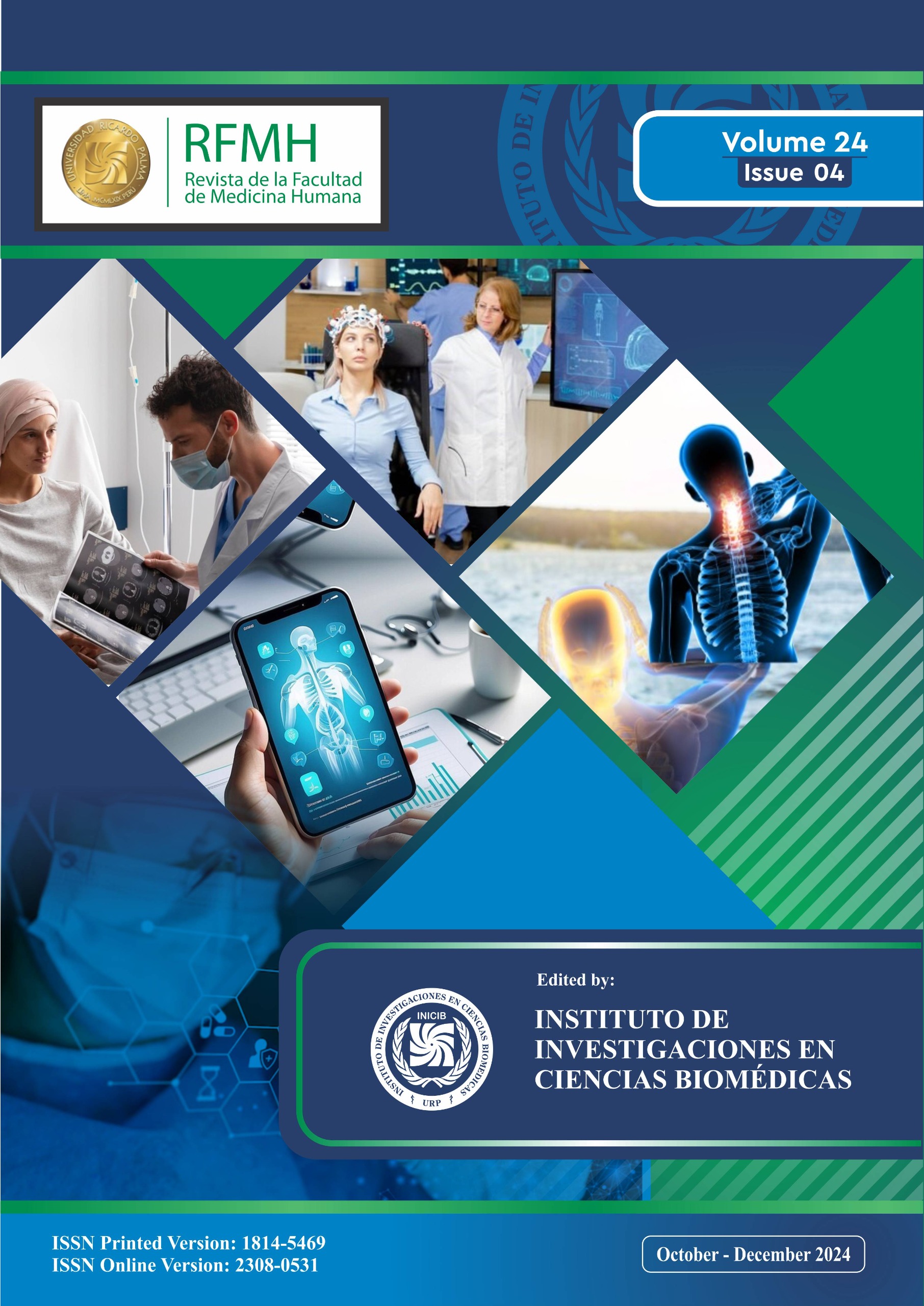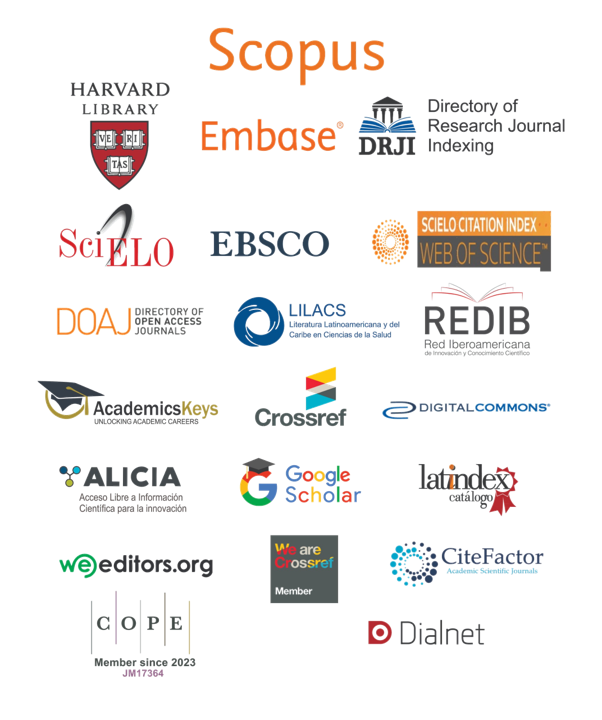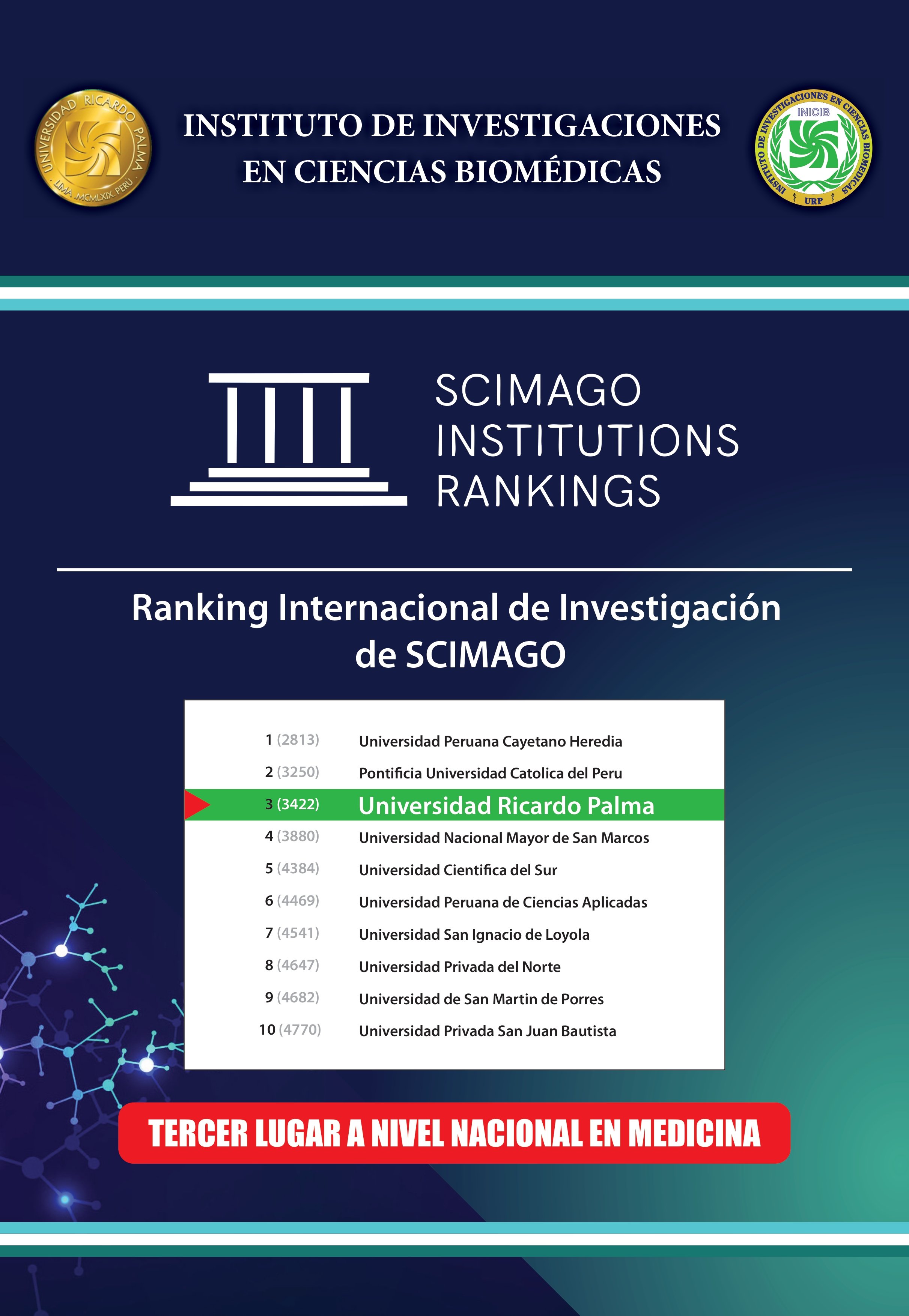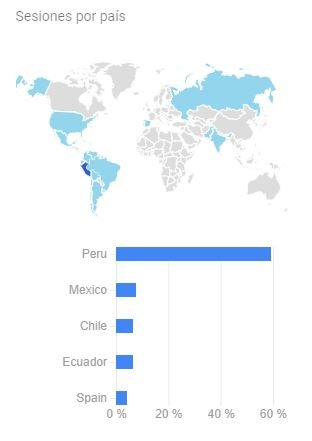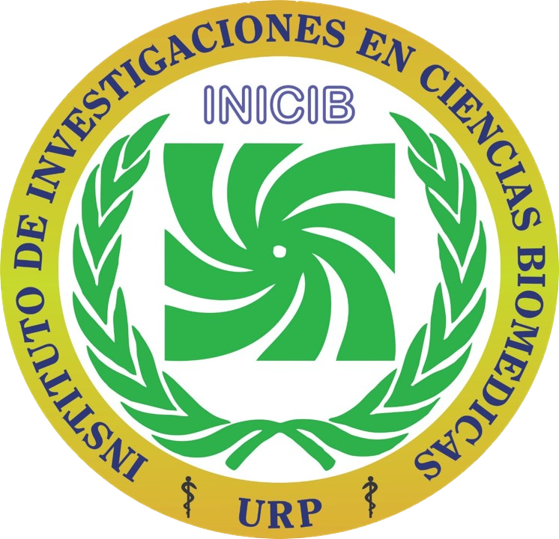Vaginal estrogen therapy and the risk of recurrence in women with a history of breast cancer
Terapia de estrógenos vaginales y riesgo de recurrencia en mujeres con antecedente de cáncer de mama
DOI:
https://doi.org/10.25176/RFMH.v23i3.5692Keywords:
Estrogens, Vaginal Creams, Breast Neoplasms, Foams and Jellies, Risk Factors, RecurrenceAbstract
Breast cancer remains the most common malignant neoplasm and one of the leading causes of mortality in women, making it a significant target for global health efforts and a public health priority. Through the use of innovative therapies, survival rates have improved, leading to the emergence of associated conditions such as genitourinary menopausal syndrome. Hormonal therapy is employed for managing this condition, significantly alleviating its symptoms and, in some cases, serving as the sole solution. The most commonly utilized approach is vaginal estrogen therapy. Nevertheless, there have been reports of a potential risk of breast cancer recurrence associated with its use. In the Spanish-speaking context, there is limited evidence discussing this topic. A search was conducted across PubMed, ScienceDirect, and MEDLINE databases, using the terms "Vaginal Estrogen Therapy," "Recurrence," and "Breast Cancer." It was determined that, on a global scale, vaginal estrogen therapy is an effective and safe therapeutic option for managing genitourinary menopausal syndrome in women with a history of breast cancer. This therapy does not appear to increase the risk of recurrence, with the exception of those undergoing treatment with aromatase inhibitors. For these individuals, alternative therapies are recommended to mitigate this potential risk.
Downloads
References
Arnold M, Morgan E, Rumgay H, Mafra A, Singh D, Laversanne M, et al. Current and future burden of breast cancer: Global statistics for 2020 and 2040. Breast. 2022; 66:15-23. DOI: 10.1016/j.breast.2022.08.010
World Health Organization. Breast cancer. (Consultado en enero 11 de 2023). Disponible en: https://www.who.int/news-room/fact-sheets/detail/breast-cancer
Li N, Deng Y, Zhou L, Tian T, Yang S, Wu Y, et al. Global burden of breast cancer and attributable risk factors in 195 countries and territories, from 1990 to 2017: results from the Global Burden of Disease Study 2017. J Hematol Oncol. 2019; 12(1):140. DOI: 10.1186/s13045-019-0828-0
Pedersen RN, Esen BÖ, Mellemkjær L, Christiansen P, Ejlertsen B, Lash TL, et al. The Incidence of Breast Cancer Recurrence 10-32 Years After Primary Diagnosis. J Natl Cancer Inst. 2022; 114(3):391-399. DOI: 10.1093/jnci/djab202
Abubakar M, Sung H, Bcr D, Guida J, Tang TS, Pfeiffer RM, et al. Breast cancer risk factors, survival and recurrence, and tumor molecular subtype: analysis of 3012 women from an indigenous Asian population. Breast Cancer Res. 2018; 20(1):114. DOI: 10.1186/s13058-018-1033-8
Cusack L, Brennan M, Baber R, Boyle F. Menopausal symptoms in breast cancer survivors: management update. Br J Gen Pract. 2013; 63(606):51-2. DOI: 10.3399/bjgp13X660977
Rozenberg S, Di Pietrantonio V, Vandromme J, Gilles C. Menopausal hormone therapy and breast cancer risk. Best Pract Res Clin Endocrinol Metab. 2021; 35(6):101577. DOI: 10.1016/j.beem.2021.101577
DeBono NL, Robinson WR, Lund JL, Tse CK, Moorman PG, Olshan AF, et al. Race, Menopausal Hormone Therapy, and Invasive Breast Cancer in the Carolina Breast Cancer Study. J Womens Health (Larchmt). 2018; 27(3):377-386. DOI: 10.1089/jwh.2016.6063
Cold S, Cold F, Jensen MB, Cronin-Fenton D, Christiansen P, Ejlertsen B. Systemic or Vaginal Hormone Therapy After Early Breast Cancer: A Danish Observational Cohort Study. J Natl Cancer Inst. 2022; 114(10):1347-1354. DOI: 10.1093/jnci/djac112
Coles CE, Anderson BO, Cameron D, Cardoso F, Horton R, Knaul FM, et al. The Lancet Breast Cancer Commission: tackling a global health, gender, and equity challenge. Lancet. 2022; 399(10330):1101-1103. DOI: 10.1016/S0140-6736(22)00184-2
World Health Organization. The Global Breast Cancer Initiative: Empowering women, building capacity, providing care for all. (Consultado en enero 11 de 2023). Disponible en: https://www.who.int/initiatives/global-breast-cancer-initiative
Harborg S, Heide-Jørgensen U, Ahern TP, Ewertz M, Cronin-Fenton D, Borgquist S. Statin use and breast cancer recurrence in postmenopausal women treated with adjuvant aromatase inhibitors: a Danish population-based cohort study. Breast Cancer Res Treat. 2020; 183(1):153-160. DOI: 10.1007/s10549-020-05749-
Ahern TP, Pedersen L, Tarp M, Cronin-Fenton DP, Garne JP, Silliman RA, et al. Statin prescriptions and breast cancer recurrence risk: a Danish nationwide prospective cohort study. J Natl Cancer Inst. 2011; 103(19):1461-8. DOI: 10.1093/jnci/djr291
Fillon M. Breast cancer recurrence risk can remain for 10 to 32 years. CA Cancer J Clin. 2022; 72(3):197-199. DOI: 10.3322/caac.21724
Lafourcade A, His M, Baglietto L, Boutron-Ruault MC, Dossus L, Rondeau V. Factors associated with breast cancer recurrences or mortality and dynamic prediction of death using history of cancer recurrences: the French E3N cohort. BMC Cancer. 2018; 18(1):171. DOI: 10.1186/s12885-018-4076-4
Mauny A, Faure S, Derbré S. Phytoestrogens and Breast Cancer: Should French Recommendations Evolve? Cancers (Basel). 2022; 14(24):6163. DOI: 10.3390/cancers14246163
Pan H, Gray R, Braybrooke J, Davies C, Taylor C, McGale P, et al. 20-Year Risks of Breast-Cancer Recurrence after Stopping Endocrine Therapy at 5 Years. N Engl J Med. 2017; 377(19):1836-1846. DOI: 10.1056/NEJMoa1701830
Sopik V, Sun P, Narod SA. Predictors of time to death after distant recurrence in breast cancer patients. Breast Cancer Res Treat. 2019; 173(2):465-474. DOI: 10.1007/s10549-018-5002-9
Heins MJ, de Ligt KM, Verloop J, Siesling S, Korevaar JC; PSCCR group. Adverse health effects after breast cancer up to 14 years after diagnosis. Breast. 2022; 61:22-28. DOI: 10.1016/j.breast.2021.12.001
Hill DA, Horick NK, Isaacs C, Domchek SM, Tomlinson GE, Lowery JT, et al. Long-term risk of medical conditions associated with breast cancer treatment. Breast Cancer Res Treat. 2014; 145(1):233-43. DOI: 10.1007/s10549-014-2928-4
Ramin C, May BJ, Roden RBS, Orellana MM, Hogan BC, McCullough MS, et al. Evaluation of osteopenia and osteoporosis in younger breast cancer survivors compared with cancer-free women: a prospective cohort study. Breast Cancer Res. 2018; 20(1):134. DOI: 10.1186/s13058-018-1061-4
Palmer SC, Stricker CT, DeMichele AM, Schapira M, Glanz K, Griggs JJ, et al. The use of a patient-reported outcome questionnaire to assess cancer survivorship concerns and psychosocial outcomes among recent survivors. Support Care Cancer. 2017; 25(8):2405-2412. DOI: 10.1007/s00520-017-3646-3
Li Q, Lin Y, Zhou H, Xu Y, Xu Y. Supportive care needs and associated factors among Chinese cancer survivors: a cross-sectional study. Support Care Cancer. 2019; 27(1):287-295. DOI: 10.1007/s00520-018-4315-x
Hamood R, Hamood H, Merhasin I, Keinan-Boker L. Hormone therapy and osteoporosis in breast cancer survivors: assessment of risk and adherence to screening recommendations. Osteoporos Int. 2019; 30(1):187-200. DOI: 10.1007/s00198-018-4758-4
Hamood R, Hamood H, Merhasin I, Keinan-Boker L. Diabetes After Hormone Therapy in Breast Cancer Survivors: A Case-Cohort Study. J Clin Oncol. 2018; 36(20):2061-2069. DOI: 10.1200/JCO.2017.76.3524
Boszkiewicz K, Piwowar A, Petryszyn P. Aromatase Inhibitors and Risk of Metabolic and Cardiovascular Adverse Effects in Breast Cancer Patients-A Systematic Review and Meta-Analysis. J Clin Med. 2022; 11(11):3133. DOI: 10.3390/jcm11113133
Bromley SE, Matthews A, Smeeth L, Stanway S, Bhaskaran K. Risk of dementia among postmenopausal breast cancer survivors treated with aromatase inhibitors versus tamoxifen: a cohort study using primary care data from the UK. J Cancer Surviv. 2019 Aug;13(4):632-640. DOI: 10.1007/s11764-019-00782-w
Jahan N, Cathcart-Rake EJ, Ruddy KJ. Late Breast Cancer Survivorship: Side Effects and Care Recommendations. J Clin Oncol. 2022; 40(15):1604-1610. DOI: 10.1200/JCO.22.00049
Cathcart-Rake EJ, Ruddy KJ. Vaginal Estrogen Therapy for the Genitourinary Symptoms of Menopause: Caution or Reassurance? J Natl Cancer Inst. 2022; 114(10):1315-1316. DOI: 10.1093/jnci/djac113
Zuo SW, Wu H, Shen W. Vaginal estrogen and mammogram results: case series and review of literature on treatment of genitourinary syndrome of menopause (GSM) in breast cancer survivors. Menopause. 2018; 25(7):828-836. DOI: 10.1097/GME.0000000000001079
Oyarzún MFG, Castelo-Branco C. Local hormone therapy for genitourinary syndrome of menopause in breast cancer patients: is it safe? Gynecol Endocrinol. 2017; 33(6):418-420. DOI: 10.1080/09513590.2017.1290076
Faubion SS, Larkin LC, Stuenkel CA, Bachmann GA, Chism LA, Kagan R, et al. Management of genitourinary syndrome of menopause in women with or at high risk for breast cancer: consensus recommendations from The North American Menopause Society and The International Society for the Study of Women's Sexual Health. Menopause. 2018; 25(6):596-608. DOI: 10.1097/GME.0000000000001121
Jha S, Wyld L, Krishnaswamy PH. The Impact of Vaginal Laser Treatment for Genitourinary Syndrome of Menopause in Breast Cancer Survivors: A Systematic Review and Meta-analysis. Clin Breast Cancer. 2019; 19(4):e556-e562. DOI: 10.1016/j.clbc.2019.04.007
Quick AM, Zvinovski F, Hudson C, Hundley A, Evans C, Suresh A, et al. Fractional CO2 laser therapy for genitourinary syndrome of menopause for breast cancer survivors. Support Care Cancer. 2020; 28(8):3669-3677. DOI: 10.1007/s00520-019-05211-3
Sussman TA, Kruse ML, Thacker HL, Abraham J. Managing Genitourinary Syndrome of Menopause in Breast Cancer Survivors Receiving Endocrine Therapy. J Oncol Pract. 2019; 15(7):363-370. DOI: 10.1200/JOP.18.00710
Lubián López DM. Management of genitourinary syndrome of menopause in breast cancer survivors: An update. World J Clin Oncol. 2022; 13(2):71-100. DOI: 10.5306/wjco.v13.i2.71
Crean-Tate KK, Faubion SS, Pederson HJ, Vencill JA, Batur P. Management of genitourinary syndrome of menopause in female cancer patients: a focus on vaginal hormonal therapy. Am J Obstet Gynecol. 2020; 222(2):103-113. DOI: 10.1016/j.ajog.2019.08.043
ACOG Committee Opinion No. 659: The Use of Vaginal Estrogen in Women With a History of Estrogen-Dependent Breast Cancer. Obstet Gynecol. 2016; 127(3):e93-e96. DOI: 10.1097/AOG.0000000000001351
Shah SC, Kayamba V, Peek RM Jr, Heimburger D. Cancer Control in Low- and Middle-Income Countries: Is It Time to Consider Screening? J Glob Oncol. 2019; 5:1-8. DOI: 10.1200/JGO.18.00200
Reyes-Monasterio A, Lozada-Martinez ID, Cabrera-Vargas LF, Narvaez-Rojas AR. Breast cancer care in Latin America: The ghost burden of a pandemic outbreak. Int J Surg. 2022; 104:106784. DOI: 10.1016/j.ijsu.2022.106784
Reyes A, Torregrosa L, Lozada-Martinez ID, Cabrera-Vargas LF, Nunez-Ordonez N, Martínez Ibata TF. Breast cancer mortality research in Latin America: A gap needed to be filled. Am J Surg. 2023; S0002-9610(23)00009-0. DOI: 10.1016/j.amjsurg.2023.01.010
Lozada-Martinez ID, Suarez-Causado A, Solana-Tinoco JB. Ethnicity, genetic variants, risk factors and cholelithiasis: The need for eco-epidemiological studies and genomic analysis in Latin American surgery. Int J Surg. 2022; 99:106589. DOI: 10.1016/j.ijsu.2022.106589
Robinson KA, Brunnhuber K, Ciliska D, Juhl CB, Christensen R, Lund H, et al. Evidence-Based Research Series-Paper 1: What Evidence-Based Research is and why is it important? J Clin Epidemiol. 2021; 129:151-157. DOI: 10.1016/j.jclinepi.2020.07.020
Lozada Martínez ID, Moscote Salazar LR. Alfabetización científica: actividad indispensable para mejorar la comunicación en salud en la población general. Rev Cuba Inf Cienc Salud. 2021; 32(1):e1725.
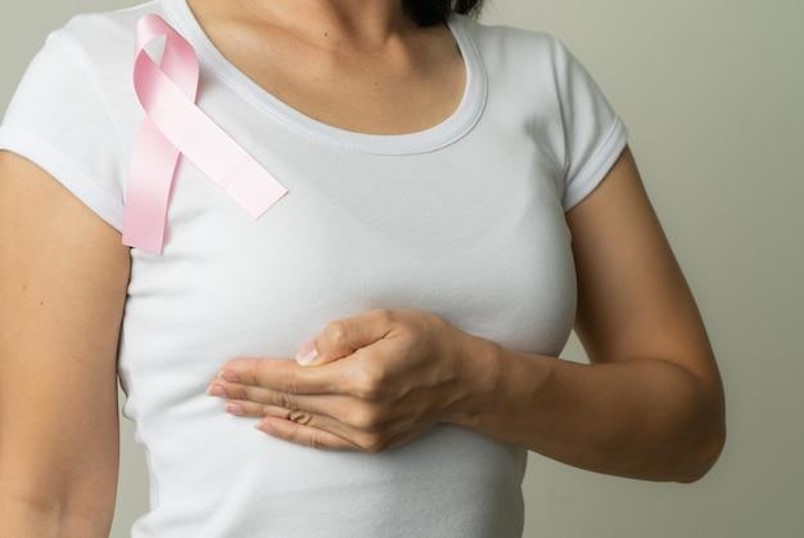
Downloads
Published
How to Cite
Issue
Section
License
Copyright (c) 2023 Revista de la Facultad de Medicina Humana

This work is licensed under a Creative Commons Attribution 4.0 International License.



